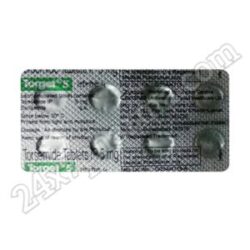Urinary Retention
Showing 1–16 of 70 resultsSorted by latest
Retorlix 20mg Tablet 30’S
Original price was: $16.$13Current price is: $13.Mirbeg 25mg Tablet 10s
Original price was: $13.$11Current price is: $11.Betheran 25mg Tablet 30’S
Original price was: $25.$21Current price is: $21.Meltor 5mg Tablet 30’S
Original price was: $7.$6Current price is: $6.Torpres 40mg Tablet 30’S
Original price was: $14.$12Current price is: $12.Cital Uti Sugar Free Suspension 100ml
Original price was: $11.$9Current price is: $9.Zytanix 5mg Tablet 10’S
Original price was: $16.$14Current price is: $14.Torsinex 20mg Tablet 10’S
Original price was: $11.$8Current price is: $8.Torsinex 10mg Tablet 30’S
Original price was: $8.$7Current price is: $7.Torsinex 100mg Tablet 10’S
Original price was: $16.$14Current price is: $14.Torget 5mg Tablet 30’S
Original price was: $7.$6Current price is: $6.Torget 40mg Tablet 10’S
Original price was: $12.$10Current price is: $10.Torget 20mg Tablet 30’S
Original price was: $19.$16Current price is: $16.Torget 10mg Tablet 30’S
Original price was: $11.$9Current price is: $9.Tor 100mg Tablet 10’S
Original price was: $18.$15Current price is: $15.Tide 5mg Tablet 30’S
Original price was: $7.$6Current price is: $6.Urinary retention may be very annoying, as anybody who has ever felt the need to pee yet been unable to do so will attest. Numerous factors, including diabetes, an enlarged prostate, and even something as simple as holding your pee for too long, might contribute to this illness.
Urinary retention is often not a major issue and may be managed with over-the-counter drugs or at-home treatments. It may, however, occasionally result in more severe health issues.
Causes of Urinary Retention
Urinary retention can be brought on by a variety of factors. An enlarged prostate is the main reason. The prostate is a little gland that aids in the production of semen and is located directly below the bladder.
As men become older, the prostate keeps expanding and may eventually start to obstruct the urethra, the tube through which pee travels, making it challenging to urinate. Among the other reasons for urine retention are:
- Neurological conditions such as Parkinson’s disease or multiple sclerosis
- Diabetes
- Anxiety or stress
- A side effect of certain medications
- Urinary tract infections
- Kidney stones
Treatment for Urinary Retention
Urinary retention is often not a major issue and may be managed at home or with over-the-counter (OTC) drugs. Several straightforward home cures are:
- Going to the bathroom as soon as you feel the urge to urinate
- Wearing loose-fitting clothing
- Avoiding beverages that contain caffeine or alcohol
- Doing pelvic floor exercises such as Kegels (these exercises help strengthen the muscles around the urethra)
If DIY solutions don’t work, your doctor could suggest over-the-counter drugs like alpha blockers. These medications aid in urethral muscle relaxation and facilitate urination. In certain instances, if a urinary tract infection is the root of your retention, your doctor could also advise antibiotics.
It’s crucial to consult a doctor if you have any urination problems, even if urine retention is just a small irritation. Usually, this ailment may be treated with over-the-counter (OTC) drugs and home treatments, but in rare instances, it may cause future major health issues. So, if you’re experiencing trouble going to the toilet, schedule an appointment with a doctor right away.
















